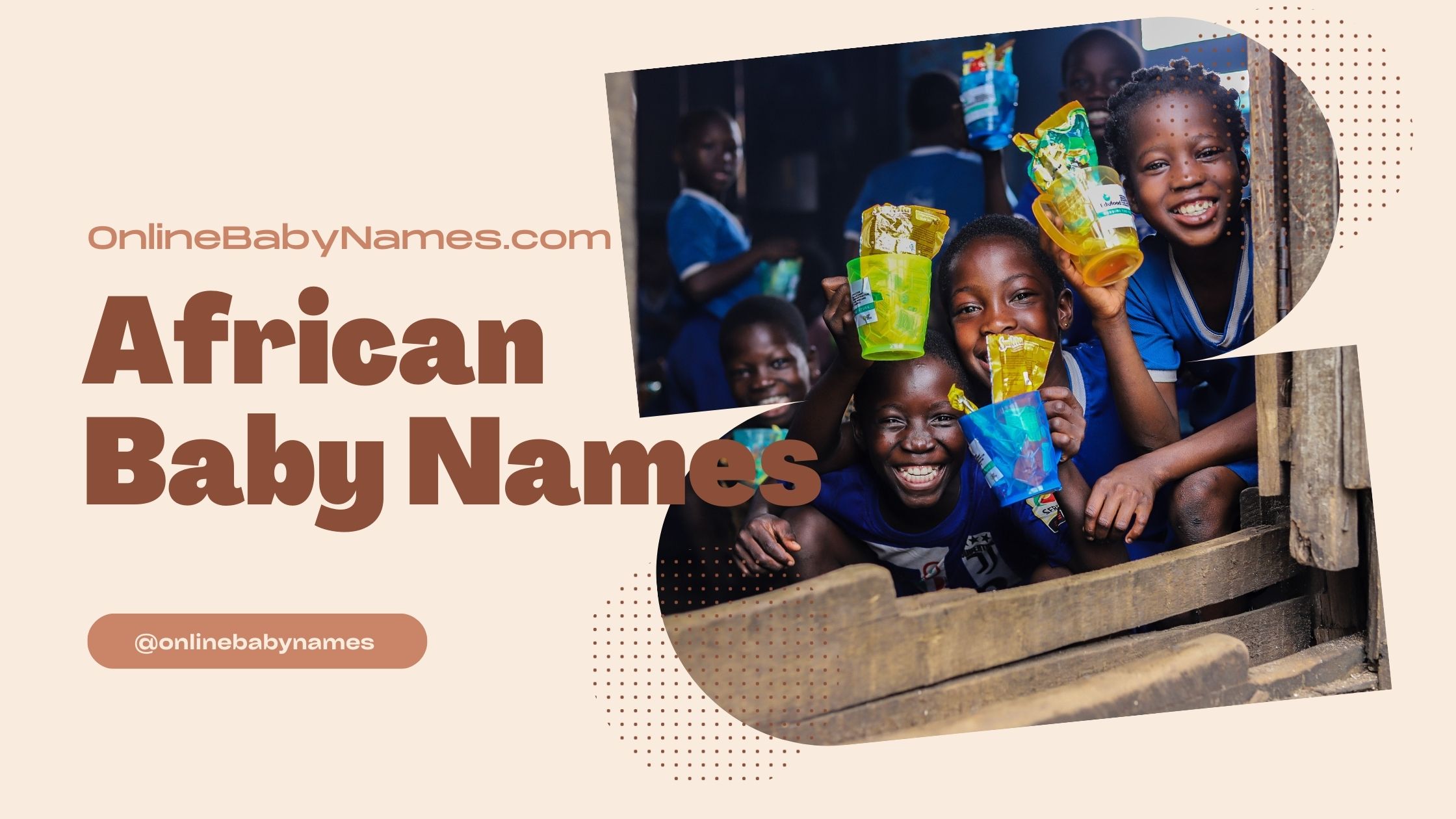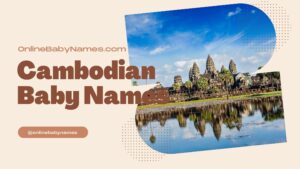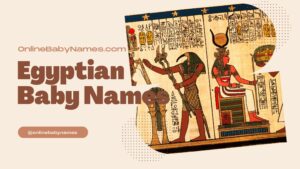
Africa, the second-largest continent in the world, boasts a diverse and rich cultural history. With over 2000 languages spoken across its 54 countries, African baby names often carry significant meaning and symbolism. Many of these names are influenced by factors such as historical events, ancestral origins, and personal traits, making them not only unique but also deeply meaningful.
I’ve observed that African baby names usually incorporate elements of nature, strength, and spirituality. The intricacies and elegance found in these names perfectly showcase the beautiful tapestry of African cultures. Additionally, more and more parents outside of Africa are embracing their heritage by choosing African baby names for their children.
To help you navigate the vast array of African names, I’ve gathered some of the most popular and meaningful baby names from various African regions and cultures. In this article, you’ll discover the origins, meanings, and breathtaking beauty found in African baby names, offering inspiration for you and your growing family.
Origins of African Baby Names
African baby names hold deep cultural significance and are often rich in tradition and meaning. As the world’s second-largest continent, Africa encompasses a vast array of ethnic groups and languages. In this section, I’ll delve into the origins of African baby names and explore their diverse linguistic and cultural roots.
One important aspect to consider when examining African baby names is the linguistic diversity of the continent. Africa is home to over 2,000 distinct languages, which can be broadly classified into four major language families:
- Afro-Asiatic: Predominantly spoken in North Africa and parts of the Horn of Africa. Some notable Afro-Asiatic languages include Arabic, Amharic, and Berber.
- Niger-Congo: The largest language family in Africa, encompassing West, Central, and Southeast Africa. Some prominent Niger-Congo languages include Swahili, Yoruba, and Zulu.
- Nilo-Saharan: Spoken by ethnic groups in parts of Central and East Africa. Examples of Nilo-Saharan languages include Dinka and Luo.
- Khoisan: This family of click languages is mainly spoken in Southern Africa. Khoisan languages include Khoi and San.
These language families significantly influence the naming patterns and practices among various African cultures. For instance, many Nigerian baby names from the Yoruba and Igbo ethnic groups often convey a personal history, moral values, or a spiritual connection.
Another aspect to consider is the cultural context behind the names. In some African societies, baby names may reflect:
- Circumstances surrounding a child’s birth (e.g., time of day, season)
- Parents’ wishes or aspirations for the child (e.g., happiness, success, strength)
- Historical events or figures (e.g., naming a child after a respected ancestor)
- Religious beliefs (e.g., incorporating elements from African Traditional Religions, Islam, or Christianity)
In many African cultures, names aren’t simply labels but are intrinsically linked to a person’s identity. A strong emphasis is placed on the meaning and values associated with a name, and it’s not uncommon for individuals to have multiple names, each carrying its unique significance.
In conclusion, the origins of African baby names are deeply rooted in the continent’s rich linguistic and cultural mosaic. Understanding the various language families and the cultural contexts in which these names are formed can provide unique insights into the diversity and significance of African baby names, enhancing our appreciation for these names and the stories they carry.
Popular African Baby Names for Boys
In this section, I’ll be sharing some popular African baby names for boys, with their meanings and origins. Africa is a diverse continent with a rich cultural heritage, and the names chosen for children often carry significant meaning. Here are some of the most popular African boy names today:
West African Names
- Ade: From the Yoruba people, it means “crown” or “royalty.”
- Kwame: A well-known Ghanaian name, given to boys born on Saturday, as per the Akan tradition.
- Chinedu: Originating from the Igbo people of Nigeria, it means “God guides.”
East African Names
- Aasir: A popular Swahili name which means “captivating” or “fascinating.”
- Kenyatta: Named after Kenya’s founding father Jomo Kenyatta, this name has grown in popularity as a symbol of patriotism.
- Tafari: This Amharic name from Ethiopia translates to “he who inspires awe.”
Southern African Names
- Thulani: A Zulu name found in South Africa with the meaning “be quiet” or “be comforted.”
- Tendai: Originating from the Shona people of Zimbabwe, it means “be thankful” or “grateful.”
- Lerato: With Sesotho roots, common in Lesotho and South Africa, it means “love.”
Northern African Names
- Jamal: A well-known Arabic name meaning “beauty” or “grace.”
- Youssef: This popular North African name has its roots in the Arabic language and means “God will increase.”
- Tarik: From the Berber people of Morocco, it means “the one who beats” or “knocks.”
Over the years, there has been a surge in the interest in African names outside the continent, as people seek unique and meaningful names for their children. Here’s a quick summary of the names mentioned above:
| Name | Origin | Meaning |
|---|---|---|
| Ade | Yoruba | Crown, royalty |
| Kwame | Akan | Boy born on Saturday |
| Chinedu | Igbo | God guides |
| Aasir | Swahili | Captivating, fascinating |
| Kenyatta | Kenyan | Symbol of patriotism |
| Tafari | Amharic | He who inspires awe |
| Thulani | Zulu | Be quiet, be comforted |
| Tendai | Shona | Be thankful, grateful |
| Lerato | Sesotho | Love |
| Jamal | Arabic | Beauty, grace |
| Youssef | Arabic | God will increase |
| Tarik | Berber | The one who beats, knocks |
While the list above represents just a fraction of the unique and meaningful baby names found across Africa, it provides a good starting point for those seeking inspiration for their child’s name. Remember, a name is an important part of a child’s identity, so it’s crucial to choose one that carries significance to you and your family.
Popular African Baby Names for Girls
When it comes to choosing a baby name, it’s crucial to find one that’s unique, full of meaning, and reflects your cultural heritage. If you’re seeking inspiration from Africa, you’re in luck! I’ve gathered some popular African baby names for girls that celebrate the rich and diverse cultures of this vast continent.
Keeping in mind that Africa is composed of 54 countries, each with its own languages, tribes, and traditions, this list is just a snippet of the beautiful names that have originated from these countries.
Amara: A name with roots in both Nigeria and Kenya, Amara means “grace” or “kindness” and is popular across East and West Africa.
Zuri: Primarily used in Swahili-speaking nations such as Kenya and Tanzania, Zuri means “beautiful” and is known for its simplicity and elegance.
Asha: With origins in Swahili and Arabic, Asha means “life” or “lively”. This name is prevalent in East Africa and among Muslim communities throughout the continent.
Kesi: Hailing from the Swahili language, Kesi means “born during difficult times”. It’s a name that symbolizes strength and resilience – perfect for a strong-willed girl.
Adaeze: In the Igbo tribe of Nigeria, Adaeze means “king’s daughter”. It’s an empowering choice for a little girl and emphasizes the importance of recognizing our roots in leading a successful life.
Eshe: Enjoying popularity in Eastern Africa, Eshe originates from the Swahili language and signifies “life”. It’s a striking name with a powerful meaning.
Makena: Widely used in Kenya, Makena means “the happy one”. It’s a joyful and uplifting choice for a baby girl.
Nala: Famously known from Disney’s The Lion King, Nala is a name with roots in South Africa, specifically among the Zulu and Swazi tribes. It signifies “successful” and embodies optimism.
Yara: A name of Lebanese origin that has found its way into African naming traditions, Yara means “butterfly”. It symbolizes transition and transformation, as well as delicacy and beauty.
Consider these popular African baby names for your little girl. Each name holds a unique meaning and showcases the richness and diversity of African cultures. Choosing one of these names will not only add beauty and uniqueness to your daughter’s identity but also pay homage to the virtues and values of different African communities.
African Names Derived from Nature
Throughout Africa, many cultures have a deep and enduring connection to nature. In this section, I’ll discuss how African baby names often take inspiration from the natural world. African names derived from nature can have various origins, ranging from animals, plants, and natural phenomena.
Names inspired by animals bring to life the beauty and strength of African wildlife. For instance, among the Luo people of Kenya, we find names such as Achieng (born during sunshine) and Odongo (born during a rainstorm). Similarly, the Yoruba people of Nigeria have names like Abimbola (born with wealth) and Adeyemo (crown fits me). These names emphasize the role nature plays in the daily lives of these communities.
Other African names derive from plant life, which represents fertility and abundance. In Botswana, the BaKalanga tribe is known for names such as Mpho (gift) and Tebogo (thanks). Here’s a selection of some African names derived from nature:
- Adeola (Yoruba): Crown of wealth
- Bahari (Swahili): Ocean
- Farai (Shona): Be happy
- Nomusa (Ndebele): With kindness
Even natural phenomena can inspire meaningful names. For example, the Akan people of Ghana have a fascinating naming tradition based on the day of the week a child is born. Here’s a table illustrating this custom:
| Day of the Week | Male Name | Female Name |
|---|---|---|
| Sunday | Kwasi | Akosua |
| Monday | Kwadwo | Adwoa |
| Tuesday | Kwabena | Abenaa |
| Wednesday | Kwaku | Akua |
| Thursday | Yaw | Yaa |
| Friday | Kofi | Afua |
| Saturday | Kwame | Ama |
Other African communities embrace their connection to the sky, stars, moon, and sun. Examples can be seen among Ethiopian Amhara and Tigray names, such as Yared (he who is inspired) and Aster (star).
In summary, African baby names offer a rich tapestry of symbolism and cultural significance, often drawing from the abundant natural world that surrounds them. Naming a child with a meaningful connection to nature is not only a beautiful way to honor their heritage, but also serves as a reminder of our role in preserving the environment for future generations.
African Names with Spiritual Meanings
I’ve always been fascinated by the rich cultural heritage of Africa, and particularly by the beautiful, meaningful names that many African cultures have. One striking feature of these names is their deep spiritual meanings. In this section, I’ll be sharing a few African names with profound spiritual meanings.
Abayomi is a Yoruba name from Nigeria, which means “someone who brings happiness.” This name reflects the belief in the power of positive energy and joy in one’s life.
Zuri is a Swahili name, popular in eastern Africa, that means “beautiful.” This name emphasizes the importance of inner and outer beauty, as well as the belief that every individual has unique qualities.
Ashanti is an Akan name from Ghana, which means “warrior.” This name highlights the courage and strength that is needed to protect and defend one’s family, community, and beliefs.
There are also several African names that convey messages of hope, guidance, and protection:
- Imani (Swahili) means “faith” or “trust.” This name underscores the power of having faith in oneself and the divine, especially during difficult times.
- Kwame (Akan) means “born on Saturday.” This name is often associated with guidance and wisdom, as Saturdays are believed to be days reserved for reflection and contemplation in Akan society.
- Kenya (Kikuyu), derived from Mount Kenya, signifies protection and spirituality since the mountain is considered sacred in Kikuyu culture.
In many African cultures, the name given to a child is believed to shape their destiny and personality. Some spiritually inspired names illustrate this belief:
- Chiamaka (Igbo) means “God is beautiful” or “God is great.” This name showcases the strength and beauty of one’s faith and relationship with the divine.
- Sefu (Swahili) means “sword.” This name symbolizes the power of wisdom and knowledge as a way to overcome challenges and conflicts in life.
- Tendai (Shona) means “be thankful” or “grateful.” This Zimbabwean name encourages a spirit of gratitude for life’s blessings, both big and small.
The spiritual meanings behind these African names show the depth and intricacy of African culture. By giving a child a spiritually meaningful name, it’s believed that parents are bestowing virtues and values upon their children. These names serve as constant reminders of the importance of faith, strength, gratitude, and beauty in their lives.
Trends in Modern African Baby Names
When selecting a name for their newborns, more and more African parents are embracing their cultural heritage. They prefer choosing names with meaning and significance, reflecting their aspirations, values, and traditions. I’ve observed some fascinating trends in modern African baby names which are worthy of sharing.
One trend that stands out is the growing popularity of unisex names. These names often have meanings related to strength, love, and unity, appealing to both boys and girls. A few examples include:
- Amari: means “strength” in both Yoruba (Nigeria) and Swahili (East Africa)
- Ife: signifies “love” in Yoruba
- Makena: means “happy one” in Kikuyu (Kenya)
Another noticeable trend is the preference for nature-inspired names. Parents are finding inspiration in their natural surroundings, naming their children after elements, animals, and plants. Some examples include:
- Zuberi: means “strong” in Swahili, and is associated with a river
- Tendai: signifies “thankful” in Shona (Zimbabwe), and is linked to the sun
- Nala: a name inspired by a lioness, from Swahili meaning “beloved”
African parents are also gravitating towards names with spiritual or religious connotations. They are choosing names that connect their children with faith, protection, and blessings. Here are a few examples:
- Sefina: means “breeze” in Swahili and represents the Holy Spirit
- Abdul: a common Muslim name meaning “servant of”
- Eshe: signifies “life” in Swahili, and is related to the concept of eternal life
Adapting to globalization trends, some African families are opting for modern and anglicized names. This preference for western-inspired names showcases the blend of traditional and contemporary influences, as well as a growing exposure to international cultures. Some examples are:
- Adeola: a Yoruba name, meaning “crown of wealth,” which can be shortened to Deola or Dola
- Tawanda: a Shona name, meaning “we are increased,” that can be abbreviated to Wanda
- Kofi: means “born on Friday” in Akan (Ghana), and can also be spelled as Cofi
Lastly, there’s been an upswing in the usage of names that evoke positive qualities or aspirations. Parents are bestowing names with auspicious or uplifting meanings, hoping to shape their children’s future and lives. Examples include:
- Amani: means “peace” in Swahili
- Uche: signifies “wisdom” in Igbo (Nigeria)
- Nia: represents “purpose” in Swahili
As you can see, modern African baby names are rich with significance and symbolism, making them heartfelt and meaningful choices for parents.
The Role of Family and Heritage
When choosing African baby names, family and heritage are essential aspects that play a significant role. In many African cultures, names carry a profound meaning and are often influenced by religion, values, and historical events. In this section, I’ll explore how family and heritage impact the selection of African baby names.
An interesting aspect to consider is the influence of cultural traditions. Depending on the community, names often reflect the circumstances of a baby’s birth, such as:
- Day of the week the child is born
- Birth order within the family
- Event that occurred around the time of birth
Many African names also pay tribute to ancestors, linking the past with the future. It’s common to find names tied to legacies that families or tribes take great pride in. These ancestral names forge a deeper connection between a child and their roots, and maintaining the historical lineage is vital to a family’s identity.
Religion plays another crucial role in selecting African names. Just as in many other cultures, religious beliefs shape the ideologies and values that guide people’s lives. For instance, in Islam-dominated Africa, names such as “Aisha” are popular, while Christian Africans might choose names like “Emmanuel” or “Grace.” As a result, the name chosen is often an embodiment of the family’s faith and spiritual connection.
Alongside religious affiliations, language is another vital aspect in African baby names. Africa is home to over 2,000 languages, which further diversify the naming traditions. Some well-known languages and their ethnic groups include:
- Swahili (East Africa)
- Yoruba (Nigeria)
- Zulu (South Africa)
Each language group has its unique naming customs that further enrich the pool of African baby names.
Lastly, with the evolving modern times, some African communities now blend traditional names with more contemporary ones, pairing a meaningful indigenous name with a popular Western name. This practice resonates with the diaspora experience, where African families strive to maintain their heritage while also adapting to their new environment.
To sum up, the role of family and heritage is paramount in the selection of African baby names. Cultural traditions, religion, language, and the blending of customs all contribute to a rich tapestry of names that tell a story, and connecting a child to their heritage.
Naming Customs in Different African Regions
When it comes to African baby names, it’s essential to understand that Africa is a diverse continent with numerous cultures, languages, and traditions. As a result, naming customs vary significantly across the region. In this section, we’ll delve into the varied naming traditions found in different African regions.
West African naming customs primarily reflect the ethnic groups, languages, and belief systems of the area. Some common practices include:
- Dual names, which comprise a private name and a public name, in the Yoruba culture of Nigeria
- The Akan people of Ghana, naming their children after the day of the week they were born
- The Mandingo people, who have Islamic-inspired names
- Widespread use of naming children after significant events or circumstances surrounding their birth
In North Africa, naming customs are predominantly influenced by Arab and Islamic traditions. Examples of North African naming practices include:
- Arabic names are widespread, often with spiritual or religious significance
- Berber names, which reflect the native Amazigh-speaking population
- Many names beginning with “Abd,” which means “servant of” followed by one of the 99 names of Allah in Islam
- Use of surnames that trace back to a person’s ancestral lineage or occupation
East African names often reflect the region’s various languages, such as Amharic, Swahili, or Tigrigna. Naming customs in East Africa include:
- Ethiopians and Eritreans adopting the father’s first name as the child’s surname
- Parents in Kenya and Tanzania choosing Swahili names, sometimes incorporating Christian or Islamic components
- Ethiopian names often deriving from biblical sources, particularly in the Amharic-speaking community
In Southern Africa, naming customs can be diverse and influenced by various factors such as regional languages, ethnicity, and religion. Some examples of Southern African naming customs are:
- Zimbabwean Shona and Ndebele people naming children after family members, positive attributes, or birth circumstances
- The Zulu people in South Africa naming children after emotions, circumstances, or desirable qualities
- Sotho and Tswana communities opting for praise-names, which reflect positive attributes
While this overview offers a glimpse into the rich tapestry of African naming customs, it’s important to remember that each name is unique and deeply rooted in a child’s cultural heritage. Each baby name carries a story, offering insight into history, ancestry, and the diverse cultures found across the African continent.
Tips for Choosing an African Baby Name
When it comes to choosing a baby name, African baby names offer a rich selection, with many options reflecting their beautiful cultures and languages. To help with your decision, I’ve compiled a list of tips for choosing an African baby name.
1. Consider the meaning: In many African cultures, the meaning behind a name is extremely important and can be connected to the family’s heritage, character traits, or aspirations for the child. Take time to research the meaning and significance of the names you’re considering to find one that deeply resonates with you.
2. Look into your family history: If you have African ancestry, explore your family tree and consider naming your child after one of your ancestors or a name that reflects your specific heritage. This could be a beautiful way to honor your family’s roots and pass down traditions through generations.
3. Choose a name that’s easy to pronounce: Keep in mind that friends, family members, and teachers will be saying your child’s name throughout their lifetime. Choose a name that is relatively easy to pronounce to avoid any potential confusion or embarrassment for your child.
4. Draw inspiration from African cultures and languages: There are countless African languages, each with their own unique names. Some examples of popular languages with beautiful names include:
- Swahili
- Yoruba
- Zulu
- Amharic
- Hausa
Explore these languages and draw inspiration from their richness to find a name that suits your taste.
5. Reflect on the attributes you want your child to possess: Many African names convey specific traits or qualities. As you research names, think about the characteristics you would like your child to embody and seek names that are associated with those traits.
6. Enlist the help of others: Don’t hesitate to ask for input from friends, family members, or online communities focused on African names and culture. They might have valuable insights or personal experiences to share that can help guide your decision-making process.
7. Keep an open mind: While you may have preconceived notions about what an African baby name should look and sound like, remember that there are countless names to choose from, each with its own unique story and significance. Embrace the diversity and richness of African names and explore various options before making your final choice.
By following these tips, you’ll be well on your way to selecting an African baby name that perfectly suits your child’s identity and heritage. Just remember that, ultimately, the most important thing is to choose a name that speaks to both your heart and your family’s cultural roots.
In Conclusion: Celebrating the Beauty of African Names
I believe African names carry a sense of uniqueness and connection to the diverse cultures found on the continent. These names often have deep roots in language, heritage, and ancestral wisdom. By choosing an African name for your baby, you’re acknowledging and appreciating the richness of these cultures.
There are countless African names that showcase the diversity of the continent. Some names are drawn from various regions and ethnic groups, while others have been passed down through generations within a single culture. Here’s just a short list of beautiful African baby names:
- Aisha (Swahili, meaning “life”)
- Kwame (Akan, meaning “born on Saturday”)
- Zola (Zulu, meaning “quiet, tranquil”)
- Idowu (Yoruba, meaning “one born after twins”)
- Belay (Amharic, meaning “above, superior”)
When opting for an African name, it’s essential to remember the importance of acknowledging and understanding the meaning behind the name. Not only will it empower you to relay the story behind your child’s name, but it will also help in preserving the cultural significance of these names for generations to come.
In summary, African names hold great beauty and cultural significance. Embracing these names allows for a deeper connection to the continent and pays tribute to the incredible diversity found within Africa. When selecting an African baby name, cherish the rich history and meaning behind each name, as it will become an integral part of your child’s identity.






